The Pope's apology was a start. Now the real work begins, some Catholics and Indigenous leaders say
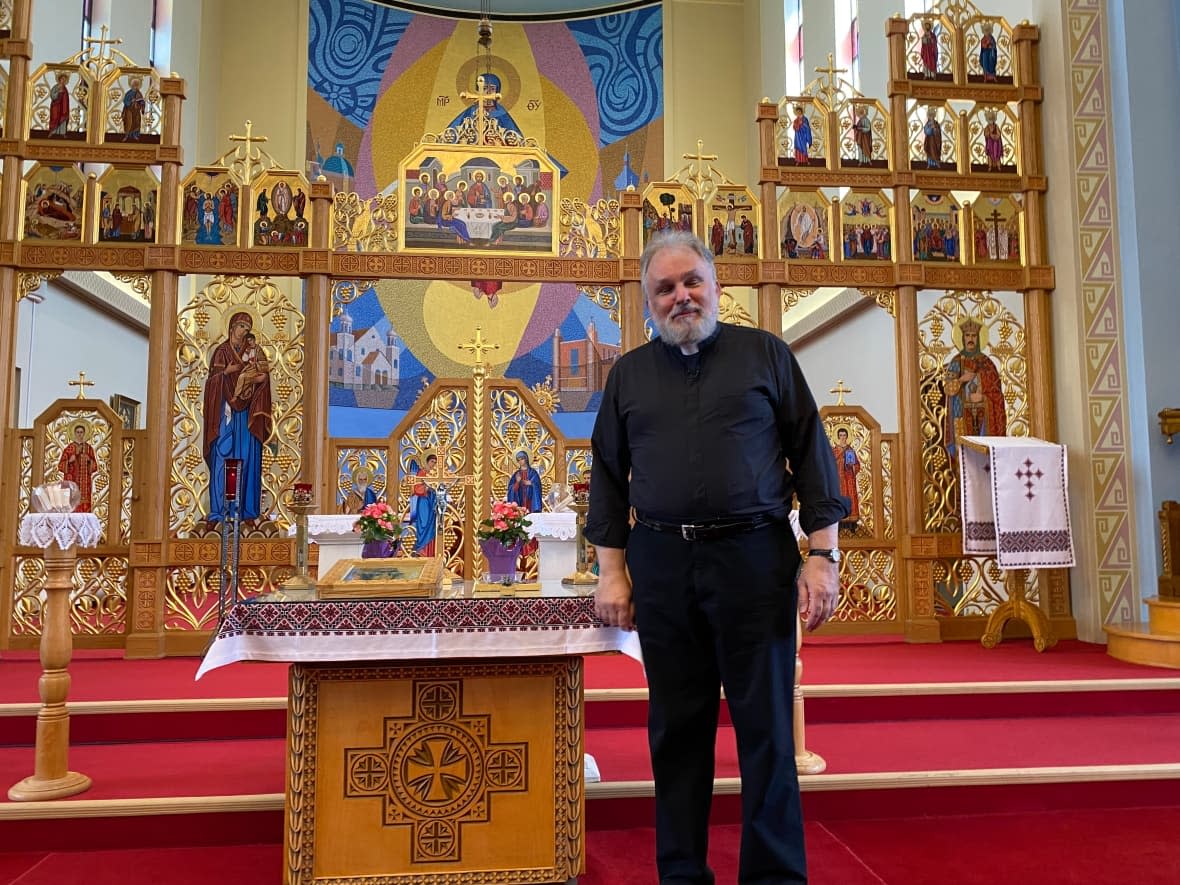
Father Michael Kwiatkowski wiped tears from his eyes as he watched Pope Francis apologize to Indigenous residential school survivors on Monday.
"One thing that's struck to my heart, and I think it would strike to the heart of all the parishioners here, here is how families were, you know, taken apart," he said.
Kwiatkowski heads the Blessed Virgin Mary Ukrainian Catholic Church, an established community in Winnipeg's north end.
He said his parishioners may be preoccupied with the war in Ukraine, but they still want to be a part of this journey to reconciliation.
It's a sentiment many non-Indigenous Catholics are expressing during the Pope's pilgrimage of penance in Canada this week.
It's reminding them of the Pope's passion for social justice, and how he opens his heart to the oppressed and downtrodden, Kwiatkowski said.
While the Vatican holds considerable wealth, fundraising for reconciliation is the responsibility of individual dioceses in Canada.
Some want Pope to apologize on behalf of church as a whole
Catholic Church entities in this country have been criticized for years for failing to raise the $25 million promised as part of the 2006 Indian Residential Schools Settlement Agreement. Their campaign only raised $4 million.
Last September, the Canadian bishops again promised to put $30 million toward healing initiatives. Yet many Indigenous residential school survivors say reconciliation is about more than money. They are also looking for action.
And many residential school survivors and Indigenous leaders wanted to hear the Pope apologize on behalf of the Catholic Church as a whole, not just its individual members. They include Murray Sinclair, the former Manitoba senator who chaired the Truth and Reconciliation Commission of Canada.
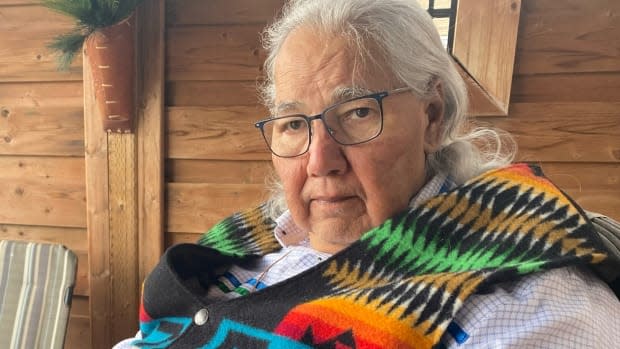
The TRC's report called for a personal apology by the Pope as one of the calls to action in its final report. Yet he still has concerns.
"Despite this historic apology, the Holy Father's statement has left a deep hole in the acknowledgement of the full role of the church in the residential school system, by placing blame on individual members of the church. It is important to underscore that the church was not just an agent of the state, nor simply a participant in government policy, but was a lead co-author of the darkest chapters in the history of this land," Sinclair said in a statement.
"Driven by the Doctrine of Discovery and other church beliefs and doctrines, Catholic leaders not only enabled the government of Canada, but pushed it even further in its work to commit cultural genocide of Indigenous peoples. In many instances, it was not just a collaboration, but an instigation."
WATCH | Pope's apology evokes strong emotions:
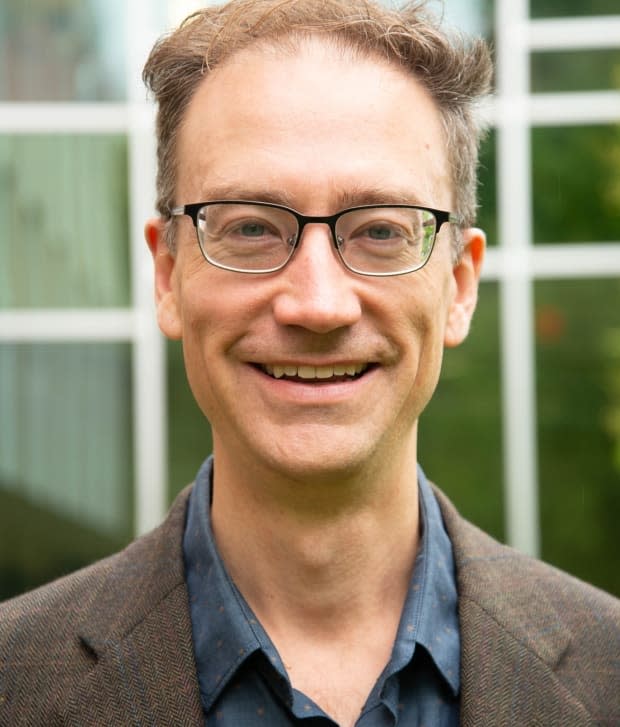
Religious experts also noticed that distinction in the Pope's apology.
"One thing that I was looking for and didn't hear, was an explicit acknowledgement of the complicity of the church as an institution," said Jeremy Bergen, who teaches religion and theology at Conrad Grebel University College, part of the University of Waterloo. He also studies church apologies.
"The Pope made a distinction, which is a significant one in Catholic theology, between what members do and what the church as an institution does. And so he acknowledged the complicity of individuals, I think, including leaders, but individuals rather than the church."
Bergen said he expects some of the Pope's statements in the upcoming days may be more nuanced than Monday's.
Catholic theology teaches that while there can be "bad actors" in the church who sin, it is considered to be Jesus's "mystical body," which does not sin, said Peter Meehan, president and vice-chancellor of St. Jerome's University at the University of Waterloo in Ontario.
The idea of the Church or the Pope as its head apologizing is relatively new, beginning with Pope John Paul II – although even he never said or implied that the Church itself was sinning, said Meehan, who is quick to say he's a Catholic Church historian and not a theologian.
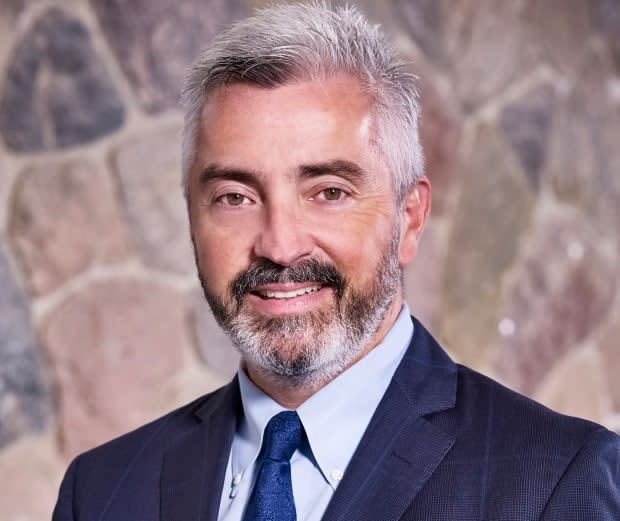
A document in 1964 explained that while we understand the Church as an institution, it is first a community – not just clergy and bishops but the whole "People of God" — baptized women and men who are given the gifts of the Holy Spirit, both "sinners and saints," Meehan said.
"A next stage for the Church will be to embrace that the collective actions of its members — who are part of the People of God – are in effect the actions of the Church, both good and bad," he said.
"As such, apologizing on behalf of the Church when it sins is appropriate because even if it did not teach sin, it — at least some of the People of God — did act sinfully."
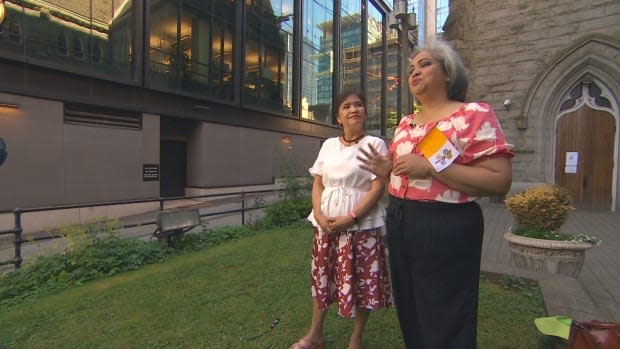
Murita Chua and Rosette Correa watched the Pope's apology, then went to mass.
Members of the Filipino Catholic Ministry in the Archdiocese of Vancouver, they were filled with emotion — sadness for the abuse and neglect of residential school survivors, but also hope for a new relationship.
"I felt for all the mothers and fathers whose children were taken away from them," Chua said. She felt the Pope's sincerity and humility in begging for forgiveness.
Correa said she believes the Pope did apologize on behalf of the Catholic Church.
"We say that the church is one holy Catholic and apostolic church. Catholic means universal. And so when he apologizes for Christianity as a whole, it means the Catholic Church as well," she explained.
'We need to ask them what they need from us'
Back in Winnipeg, Rachel Suarez-Banmann, a Catholic mother of three, said she is troubled by stories of elders neglected and abused as children.
"The Catholic Church was a significant part of this experience and this trauma," she said.
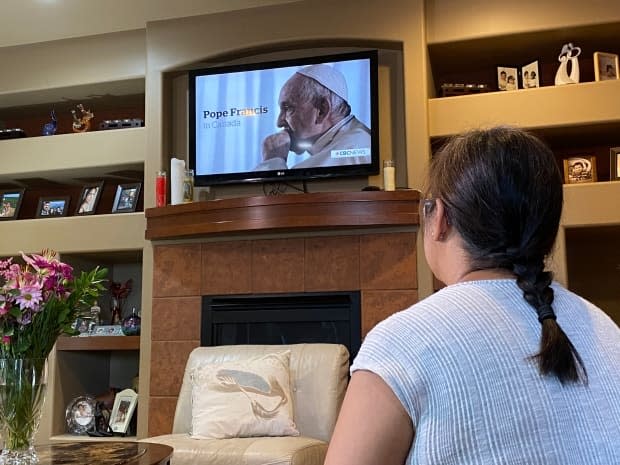
She hopes residential school survivors will see the Pope's visit as sincere, trust his words, and then see renewed effort and action on the part of the Catholic Church.
Suarez-Banmann believes much of that will come down to individual relationships and a humble spirit of listening and learning.
"We, as a Catholic community, have to journey with our Indigenous brothers and sisters through the whole truth, reconciliation, healing process," she said.
"We can't, as a church, as a community, dictate what they need. We need to ask them what they need from us."
Support is available for anyone affected by their experience at residential schools or by the latest reports.
A national Indian Residential School Crisis Line has been set up to provide support for former students and those affected. People can access emotional and crisis referral services by calling the 24-hour national crisis line: 1-866-925-4419.
Mental health counselling and crisis support is also available 24 hours a day, seven days a week through the Hope for Wellness hotline at 1-855-242-3310 or by online chat at www.hopeforwellness.ca.


